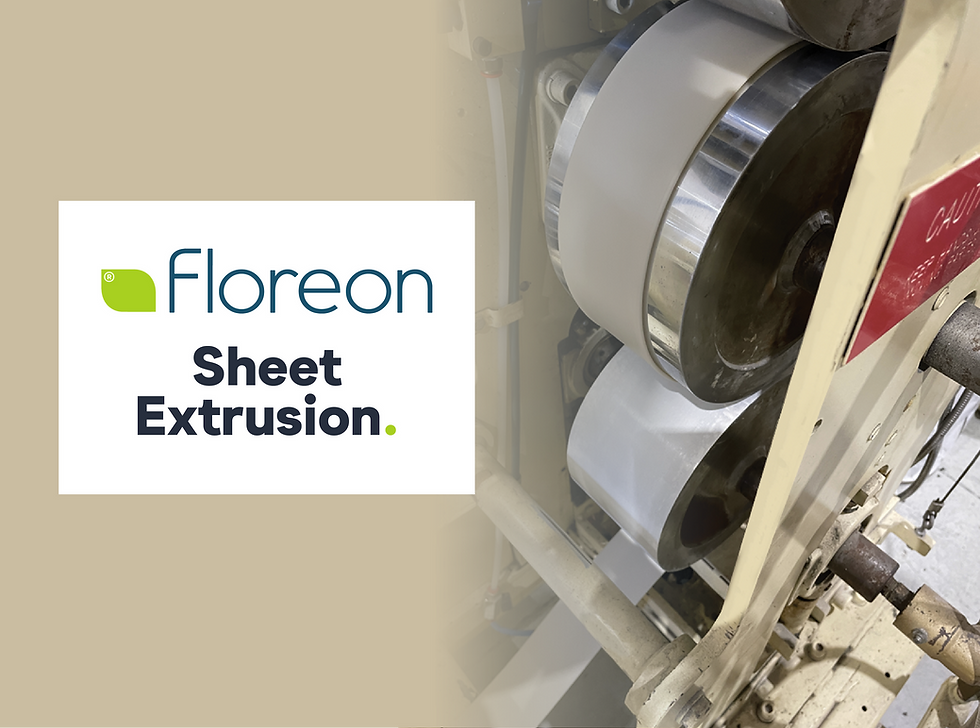Setting bioplastics up to hit the sustainability sweet spot
- Alison Evans

- Jul 13, 2021
- 1 min read
Bioplastics, Polylactic Acid (PLA) thermoplastic polymers in particular, have received negative feedback in recent years. That’s because it failed to hit the sustainability sweet spot. It wasn’t socially, environmentally or economically viable enough to meet all the needs of a modern day, fast-paced brand. However, one innovative British firm is redefining that mindset with the development of a renewable and high performing bioplastic that works.
“The climate action voice has never been stronger than it is today”, states Shaun Chatterton, the Founder and CEO of materials technology company, Floreon. “Consumers are holding brands to account, and brands are now searching for sustainable options as a result. Yet plastics are sidelined for other materials, and that’s not always necessary. Plastics still very much have a place, as long as they hit that sustainability sweet spot and incorporate circularity.”
The renewable plant-based plastic in question is Floreon. Derived from crops such as corn and sugar cane, it is the result of ten years of careful research and development not achieved anywhere else.

“It is shaking up perceptions of plastic’s place in the world, as Floreon enables brands to reach their sustainability goals by replacing their current oil-based plastics with Floreon’s bioplastic.” Shaun continues.
For brands struggling with circularity of Floreon bioplastics, the company also offers a range of end-of-life options including recycling and composting.
Shaun concluded: “Our mission is to deliver a commercially compelling alternative to traditional plastic which lowers carbon footprint, contributing to the fight against climate change across multiple applications. Brands can now reconsider bioplastics as a viable material that hits the sustainability sweet spot and that’s an exciting prospect.”



Comments